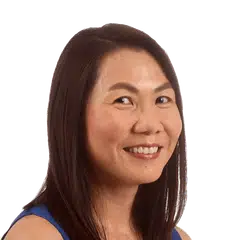Asia’s first caregiver podcast sheds light on the three unspoken stressors of caregiving
Sign up now: Get ST's newsletters delivered to your inbox

Counsellor James Leong created the podcast, This Is What Caregiver Stress Feels Like, to give voice to caregivers' stories without a top-down approach.
ST PHOTO: SHINTARO TAY
Follow topic:
SINGAPORE – Laticia (not her real name) became a caregiver at 16 when her mother underwent a major surgical procedure.
It was her O-levels year, but she was expected to look after her mum in the hospital as well as take over the household chores and cook for her father and older brother.
“No one bothered to ask: ‘How are you? How are you coping? Do you have time to study? It was like I was just so non-existent,” she says in the Singapore-based podcast, This Is What Caregiver Stress Feels Like.
Stretched to her limit, she fared badly in her examinations, and her father said it was a waste of time sending her to school.
Six years later, her brother, the favoured child, died in an accident at age 20. Her mother blamed her for not trying to save his life, even though Laticia, then 22 and the first to arrive at the hospital, was denied the chance to see him.
“I don’t think they really loved me,” the 51-year-old says of her parents, now in their 70s, during a revealing moment in the podcast episode which aired in September 2024.
Podcast host and Singaporean counsellor James Leong, who is in his 50s, has featured her story as one of four profiles in what he calls Asia’s first podcast for caregivers.
It aims to provide a “bold and honest approach” to addressing the unspoken stressors of being a caregiver in a traditional society that prioritises family and keeping up with appearances, he says.
His local guests, who were recommended to him through his professional network, speak about their caregiving journey in their own voices. Laticia’s real name has been changed for privacy reasons.
“I felt that the caregivers had stayed silent for far too long and their stories were dying to be told. It was as if they came looking for me instead and it was surreal that each story fell very nicely into the unspoken stressors I wanted to address,” says Mr Leong, who runs private counselling practice Listen Without Prejudice.
“I’m blessed to have captured that level of vulnerability and the intensity of their emotions, which is rare for an Asian podcast.”
This Is What Caregiver Stress Feels Like has four episodes funded by The Oscar Fund by Temasek Foundation, which supports ground-up, self-help philanthropic initiatives, and disability agency SG Enable’s Caregiver Empowerment Fund.
He also partnered Caregiving Welfare Association, a charity that aims to enhance the lives of seniors and their family caregivers, on the podcast. It was launched during the association’s annual flagship event, Caregiving Week 2024, in September 2024.
He is seeking funding for more episodes.
During the podcast’s three-year gestation, Mr Leong uncovered three common stressors caregivers face that remain unspoken because of cultural taboos and the narrative of family above self.
The first is unhealthy family dynamics shown in Laticia’s story, in which she had to care for parents who did not show her love and made life difficult for her.
The second stressor is a loss of identity and poor self-care. The third is grief.
He recounts the case of a man named Jonathan, who ticked all the boxes his family expected of him – get a degree, a good job, a wife and a child – only to have it all tumble down like a house of cards when his only child was found to have autism.
After some years, Jonathan’s wife wanted to return to work and he was forced to quit his job to become their daughter’s full-time caregiver.
He grieved over the loss of his identity and what his child could have been, but amid the anger and frustration, he also found joy in caring for his daughter and his new identity as a father and a full-time caregiver, as revealed in the podcast.
Laticia says that while it was painful for her to revisit her past, recording the podcast episode helped her stand by the difficult decision to set boundaries with her parents, which gave her a renewed sense of identity.
“I wanted to share my story so that others going through similar emotional turmoil won’t feel that they are alone and can make better decisions for themselves. Being a caregiver, we do lose our identity in that journey”.
Correction note: In an earlier version of the story, we said that the podcast was funded in part by SG Enable’s Caregiving Empowerment Fund. SG Enable has since clarified that it is the Caregiver Empowerment Fund.
The podcast, This Is What Caregiver Stress Feels Like, is available for free on Spotify (
str.sg/m3YX
) and Apple Podcasts (str.sg/Mmjb
).Stephanie Yeo is senior correspondent at The Straits Times’ Life section.


